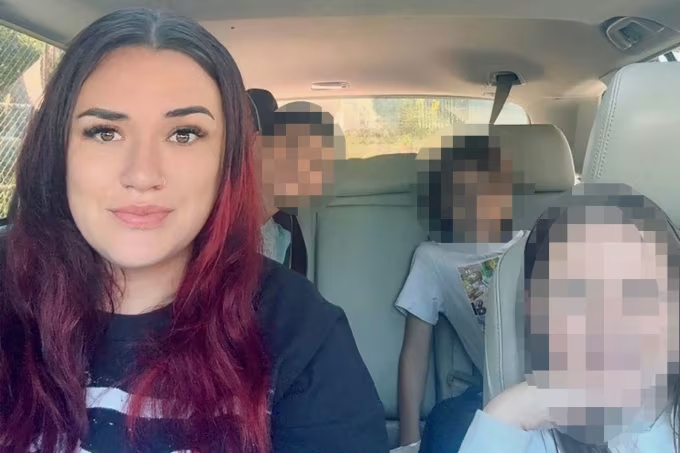A mother from Washington state and her 6-year-old son, both New Zealand citizens, have been released after spending more than three weeks in US immigration detention due to a brief trip to Canada and a minor paperwork mistake, her attorney told CNN on Saturday.
Sarah Shaw, 33, has lived legally in the United States since arriving in 2021. She was detained at the Blaine, Washington, Customs and Border Protection checkpoint while returning home after dropping her two oldest children off at the Vancouver airport for a flight to visit their grandparents in New Zealand.
Shaw chose the flight out of Vancouver because it was direct and she didn’t want her children to have to navigate a layover alone, her attorney Minda Thorward told CNN.
However, Shaw had not realized that the travel permit allowing her to exit and re-enter the US had expired. As a result, both she and her son, whose immigration documents were valid, were taken into custody by CBP.
Shaw attempted to obtain humanitarian parole, which would have allowed her to enter the US and return home, but was denied, Thorward said. She also asked whether her boyfriend or a friend could pick up her son since his documents were up to date, but that request was denied as well.
They were transported approximately 2,000 miles to the South Texas Family Residential Center in Dilley, Texas.
Shaw’s case is part of a broader trend under the Trump administration’s immigration policies, which, despite promises to prioritize violent criminals, have affected lawful residents like Shaw.
Shaw had come to the US as a tourist in 2021, married a citizen the same year, and later filed an I-360 petition in April 2022 after her marriage ended. Her application remains under review following multiple delays.
She had been living under a “combo card,” a dual document that serves as both a work permit and a travel document, obtained through her job in Washington state.
When it came time to renew both components, Shaw renewed only her work permit, opting not to renew her travel authorization at the time due to cost and lack of travel plans.
In June, she received confirmation that her work permit was renewed but mistakenly believed this also extended her travel authorization, a “minor administrative paperwork error,” according to her lawyer.
“She had completely re-established herself. She had a full-time job, an apartment, adopted a dog, a new boyfriend, and the kids were in school and doing great,” Thorward said. “She made a mistake, but she has no previous convictions – none. This is a very clean case.”
Shaw had previously told Thorward that DHS indicated she might be released on Friday, though her attorney said she had not received direct updates from authorities. CNN reached out to ICE for comment.
New Zealand’s foreign affairs ministry confirmed it was in contact with Shaw but declined to provide further details for privacy reasons.
Shaw, set to begin a master’s program in psychology at Northwest University this month, worried whether she would be released in time, Thorward said.
Thorward criticized the detention, stating, “It was not necessary, inappropriate and inhumane (to detain Shaw and her son). She’s lawfully in the country. She’s been doing everything in good faith.”
A CBP spokesperson responded, “If they are accompanied by a minor, CBP will follow all protocols to keep families together or arrange care with a legal guardian.”
The agency noted that individuals with expired parole attempting to re-enter the US would be detained in compliance with immigration laws.
Victoria Besancon, a friend of Shaw’s, described the conditions at the detention facility. “Each room contains 5 to 6 bunk beds, and rooms are locked from 8 p.m. to 8 a.m.,” she said, adding that she has been able to phone Shaw daily and recently video chat.
Besancon said Shaw’s son was “very sad he lost his summer vacation to being locked in the facility.” Shaw used commissary funds to buy him ice cream and colored pencils to help him feel at home.
“There’s not a lot for kids to do. Maybe some coloring books. There’s no time for them to be outside,” Thorward added, noting that detainees endured the sweltering South Texas heat, where summer temperatures can reach up to 97 degrees.
The South Texas Family Residential Center, one of the largest of its kind in the US, primarily houses migrant women and children.
It reopened in March under a private prison agreement with ICE, with a capacity of up to 2,400 people. Other mothers detained there have reported traumatic experiences with lasting psychological effects on children.
ICE maintains that the detention centers are safe, listing on its website various safety and health standards, including medical, dental, and mental health intake screening, and access to medical care.
